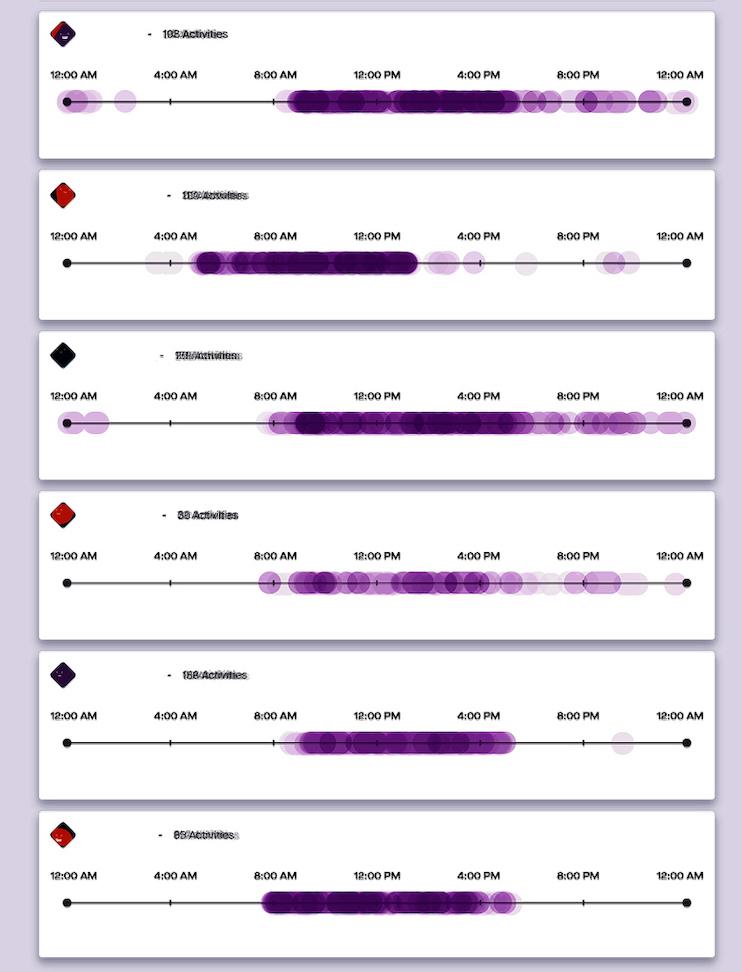Produce8
MSPs looking for the Produce8 Playbook, look no further!
The four-day workweek movement is gaining momentum. If you don’t quite believe me then you clearly haven’t been reading the news or scrolling through LinkedIn for a while.
Need a quick catch-up on the topic? Check out our recent article on the four-day workweek .
As a team of people who just can’t stop talking about all things related to the future of work, this movement is something we’re pretty excited about here at Produce8.
We’re passionate about work flexibility.
We’re passionate about work-life balance.
We're passionate about excelling in our careers and succeeding as a business.
And we’re sure as heck passionate about the belief that it’s happy, healthy people who drive the world’s best businesses forward.
All of that to say, we’re jumping into the four-day workweek movement with gusto and conviction!
Sort of.
Getting started with a 4-day workweek…or something
Let me explain.
Starting a four-day workweek pilot is exciting, to be sure. And our entire team was well onboard. But the more we talked about it and the more we discussed how we were going to put this thing into action, the more concerned we all became about replacing one rigid work model with another.
Currently we’re a remote-first team all working a pretty standard 40-hour workweek—with flexibility, of course.
- Some of us start earlier to accommodate family schedules.
- Some of us take extended breaks in the day for appointments or other personal reasons, and make up the time earlier or later on.
- And as a team, we work across various time zones, which factors into our collective working style as well.
But those 40-ish hours a week are pretty consistent across our entire team. So the question became this:
In adopting a new type of workweek, were we just going to do the same things as we’ve always done, but in 32 hours?
This was the first of several concepts we discussed as a team.

1. A 32-hour workweek
This didn’t sit well with us. Why were we so focused on hours worked? The foundation of our entire company is based on leaving that sort of input or time-based thinking out of the work-evaluation equation and instead focusing on output, or completed work.
In other words, if you get everything you need to get done to be successful at your job, then why should the number of hours you work even matter?
It shouldn’t, we reasoned. And while we know based on our research there have been countless studies that have shown this 32-hour model can be very successful—such as pilots by 4 Day Week Global and Iceland’s 35-36-hour shortened workweek—we began thinking about other ways we could structure our own new workweek.
2. An outcome-oriented workweek
Key performance indicators (KPIs) like MRR, leads generated or customers acquired to assess our weekly success, perhaps? This changes the focus from time spent to outcomes accomplished.
Or what about tasks or goals achieved? If you complete all your established goals over a workweek, then that’s a solid measure of productivity and success. And the rest of the week is yours to enjoy as you see fit. Sounds good—in theory.
But what if you don’t reach your goals or KPIs? The reality is, even when we work our absolute hardest, we don’t always reach the desired outcome. That’s life. So what then? Do you have to keep working until you hit them? Do you put in evenings and weekends, too?
We’ve also found it can be difficult for pre-revenue startups like ours to establish KPI targets. One thing we have done is move from bi-weekly to weekly sprints to become more outcome-focused as a team. But it’s a process, for sure.
Next idea…
3. A more flexible workweek
Another option we discussed zeroed in on work flexibility. We could empower our team members to put in their hours when they feel they could be most productive—really make the most of their individual biological prime times.
As humans, we’re really only able to accomplish deep, focused work for about 4 to 5 hours a day. So theoretically, by harnessing this concept, we could enable each of our team members to accomplish their best work in the least amount of time, on their time.
Of course, as you probably already guessed, we quickly came to the conclusion that this would pose some pretty steep challenges in terms of team collaboration—especially considering our various timezones. We would need to ensure some dedicated work-overlap time to keep our teamwork moving forward.
We’ve started our journey and we’re still exploring our options—which is a-okay with us. Even if we haven’t quite zero’ed in on the best workweek model for our team just yet, we’re making progress and thinking critically about our next steps.
So perhaps the best way forward is for us to examine what our current work model really looks like so we can identify what’s working, what’s not, and how we can evolve what we’re doing together as a team.
How we’re tracking and measuring our workweek
We believe to really understand the impact of a new workweek pilot, we first need to examine and understand our team’s current five-day workweek in terms of our daily habits, patterns and workflows.
- How are we allocating our time between our work apps?
- How long are we spending in meetings and on Slack?
- How can we adjust and fine-tune all of this to better suit a productive, shortened work schedule?
Our team is currently in the midst of measuring a control period using our own Produce8 software. Here’s a little peek at what our team members’ Slack-usage looked like over a two-week period, for example:

The results have sparked some interesting conversations for us, which we’ll dig into in an upcoming post.
Once we’ve gathered our control-period data, we’ll be able to make a series of data-backed process and policy changes as a team and start a pilot of our new workweek model.
The truth is, we don’t know exactly what that new model is going to look like just yet. We want to see the data and we want to make changes we can measure.
Then, at the end of all that, we’re excited to come together again and compare the two data sets. We want to be able to show the precise impact our changes have so we can continue making the right kinds of evolutions that will move us all toward a better future of work .
The outcomes of a shortened workweek
There are plenty of positive outcomes we hope to see from this shortened workweek pilot—many of which are a little subjective.
We’re hoping to accomplish the following for our team:
- Improved job satisfaction for our team members.
- Better work-life balance—more time to spend with friends, family and ourselves doing the things we love. Afterall, we should work to live, not live to work.
- Greater overall health and wellbeing—which is pretty big and broad, we know.
But we also know if we can accomplish these things—if we can make changes that will positively impact our feelings, our mindsets and maybe even our physical selves—then these outcomes will go a long way toward improving our team’s collective work experience.
It’s worth noting that one of the driving forces behind the four-day workweek movement in general is it results in better outcomes for all.
- Objectively, higher productivity means better results for the business.
- And happy employees are great in their own right, but they also benefit the company because it's easier—and less costly—to attract and retain employees. Research also shows happiness makes people around 12% more productive. How about that :)
This goes back to what we said in the beginning: it’s happy, healthy people who drive the world’s best businesses forward.
Follow us on our 4-day workweek pilot
If your team is thinking of taking the plunge and trying out a four-day workweek—or something like it—we invite you to follow along on our journey over the next few months. We don’t know yet what the outcomes will be, but we’re excited to try new ways of working together as a remote team and find the workweek that works for us.
You can also check out the pilot programs being led by organizations like 4 Day Week Global, mentioned above. They provide great research and guidance to help you get started on a good path.
And if you have any questions about our process, our methods or our outcomes along the way, we’re always happy to have a chat!
Related Aritcles
Digital Work Analytics reporting
AIRO Part 4 - From Reactive IT to Managed AI - The Next Evolution for MSPs
2 min read
Unlock great workdays
Wether you are collaborating with your team or solo tackling your day we can help you recover the most valuable asset, time.
